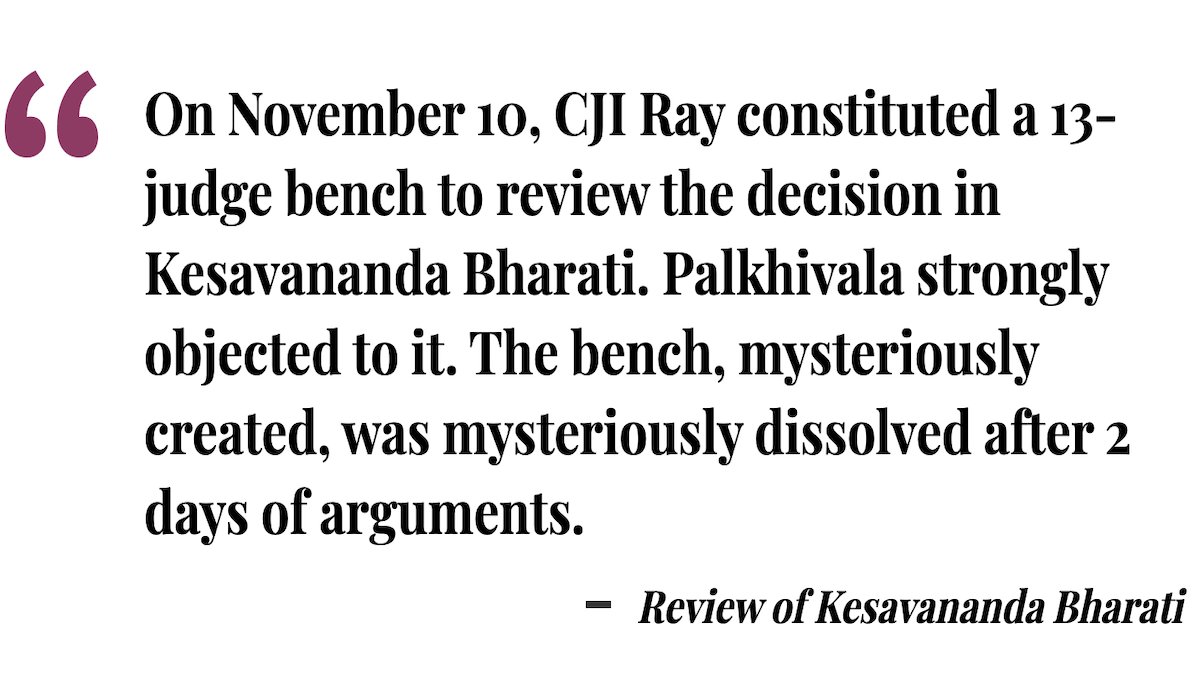@namitsaxena2007 #indiragandhi
barandbench.com/columns/45-yea…
1) I. C. Golaknath & Ors vs State Of Punjab
2) RC Cooper vs Union Of India (Bank Nationalization Case)
3) Maharajadhiraja Madhav Rao vs Union Of India (privy purses case)
Justice Sinha accordingly disqualified Gandhi from holding any public office for a period of 6 years from the date.
After hearing the arguments on stay application, Justice Krishna Iyer reserved judgment and pronounced the same on the next day, June 24, at 3:45pm.
Importantly, it was also laid down that the basic structure doctrine does not apply to ordinary legislation, but only to constitutional amendments.

Indira Gandhi lost the election and the Janata Party rose to power. Raj Narain emerged victorious. He was made the health minister in the Janata Party government.













